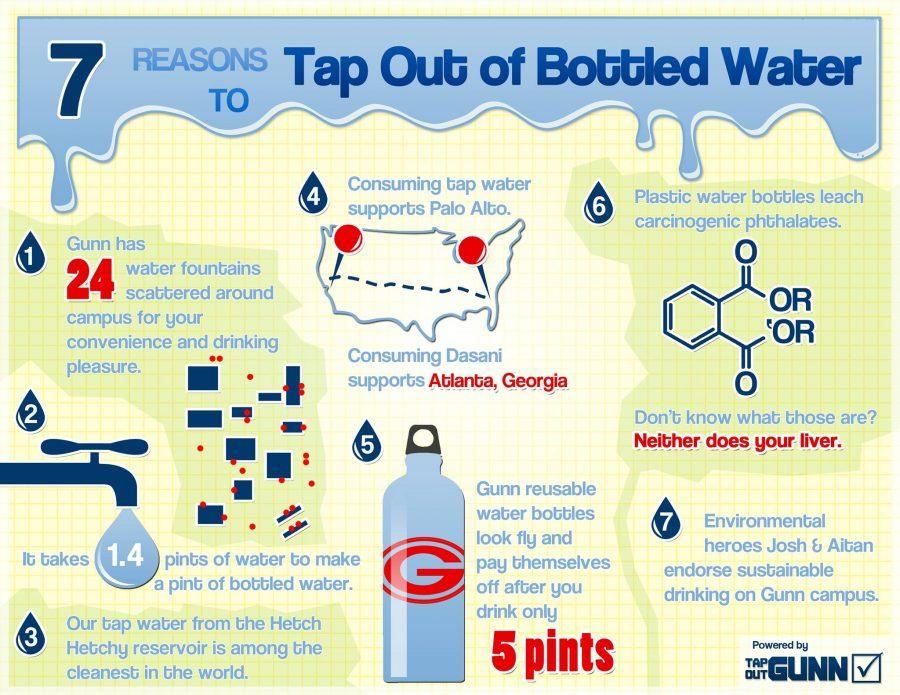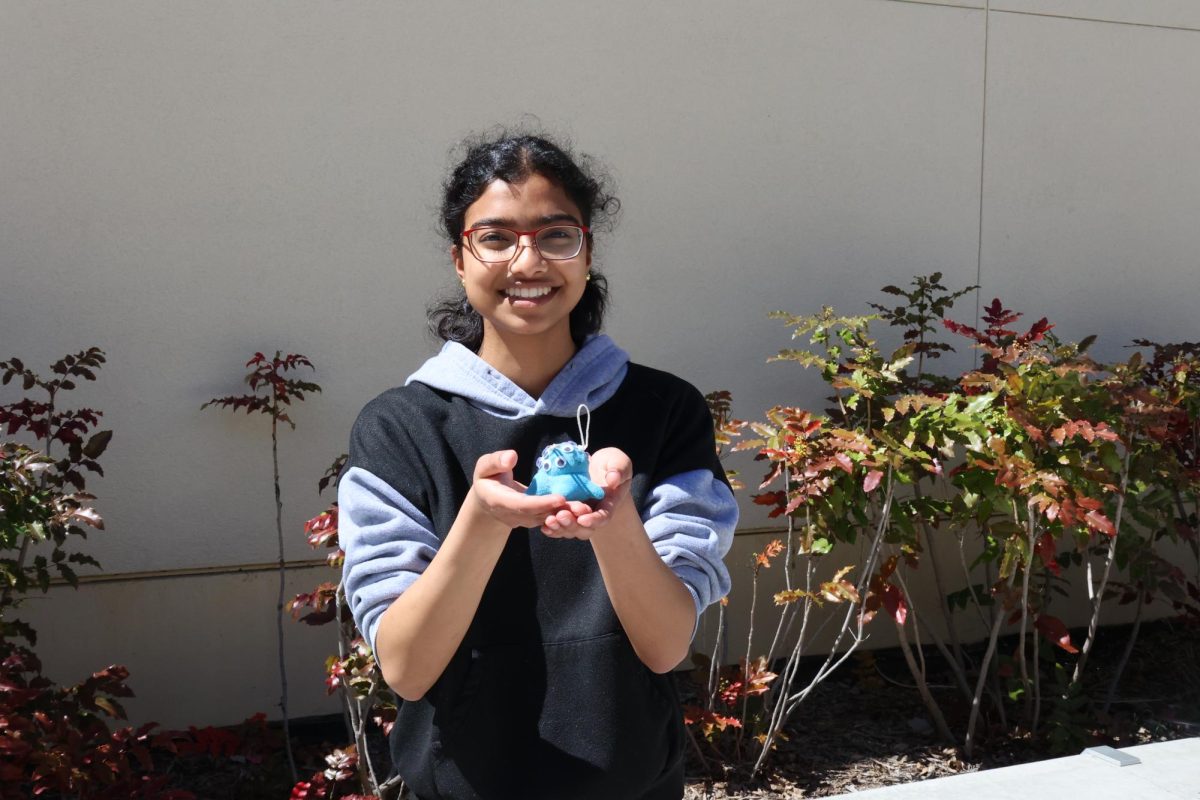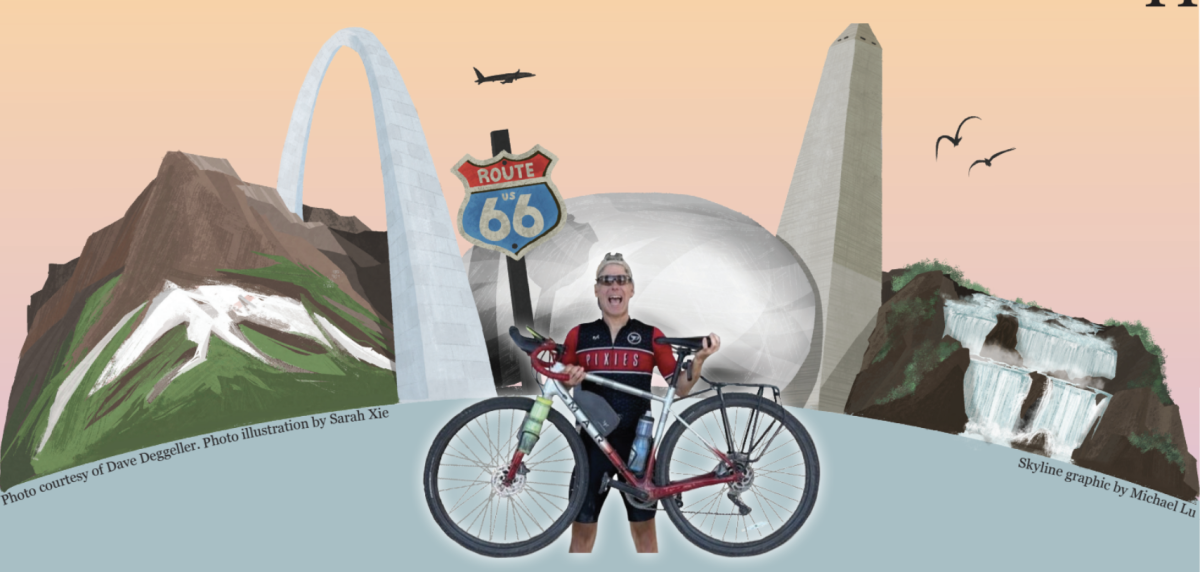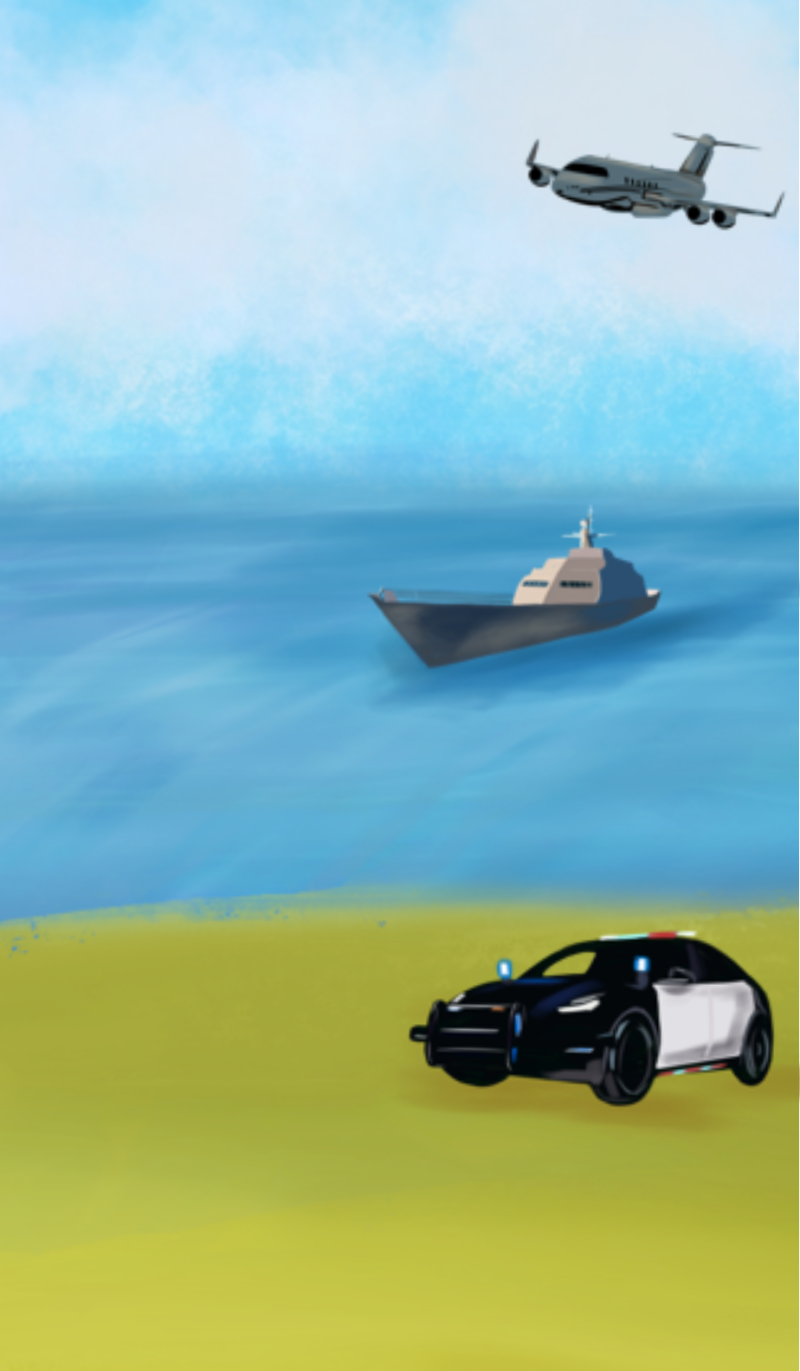Written by Kush Dubey
The second semester of Advanced Placement Environmental Science features the documentary “Tapped,” in which an investigative team analyzes the climate, economy and health roles of the American bottled water industry. The documentary inspired seniors Aitan Grossman and Josh Kaplan to create real change through the Tap Out Gunn campaign.
In May, the petition for the Gunn administration to eliminate the sale of single-use disposable water bottles and to install water bottle filling stations on campus was formally announced as part of the campaign called Tap Out Gunn. According to Grossman, the online petition currently has signatures from 530 students and teachers, meeting the amount needed to officially be recognized by Gunn officials. After finding and working with a water infrastructure district official, Grossman and Kaplan will present the petition to the Gunn administration possibly this school year.
Grossman and Kaplan believe prevalent health, environmental and financial problems with plastic bottles haven’t been acknowledged by the Palo Alto community. According to Grossman, industrial chemicals used in the bottling process have a negative effect on users’ well being. “Plastic water bottles are made with polyethylene terephthalate (PET), which is a synthetic plastic that slowly leaches carcinogenic chemicals into the water inside these bottles,” Grossman said. “Especially when they’re stored for long periods of time or exposed to the sunlight.” Despite public apprehension toward the cleanliness of tap water, Kaplan says there is no reason to raise concern. “People are led into believing that their plastic water bottle is in some way cleaner than a reusable one, which just isn’t the case,” he said. “In Palo Alto we have water that comes from the Hetch Hetchy reservoir. It’s so clean that it’s not filtered in any way. It’s just monitored for contaminants.”
In addition to health issues, plastic water bottles have caused substantial damage to shore regions due to their widespread consumption according to a Palo Alto City Council study. Grossman explained the detrimental effects plastic usage has on the city’s surrounding ecosystems. “When there are plastic bits in aquatic ecosystems, animals don’t know better but to eat them,” he said. “The plastic gets into their system and never comes out, so they’ll either die of starvation because their stomachs are so full of plastic bits, or they die of poisoning from the PET.”
In addition, Kaplan says that from a purely economic standpoint, plastic water bottles are a net expense to a customer. The Tap Out Gunn team discovered that $5 reusable bottles are more cost beneficial in the long term. “We’ve met a lot of people who said that they’ve bought a plastic water bottle everyday,” Kaplan said. “If they buy one of the subsidized ones from the cafeteria for $1, after one week they’re already losing money that they could have saved using a reusable bottle.”
To address all of the issues with the bottled water industry, Grossman and Kaplan have outlined their goals into a three-fold plan. The first goal is to raise awareness about the negative consequences of utilizing plastic water bottles. Their next task is to implement change at Gunn, and the third objective is to advance the campaign geographically.
At this point Grossman and Kaplan have created an infographic, social media pages, as well as an essay-format petition which have all set the foundation for success. In addition, Kaplan has connected the Tap Out campaign with a water bottle company called Bobble to receive 50 free reusable water bottles for distribution around the Gunn campus.
The public response has been welcoming according to Grossman and Kaplan, with students and staff members providing the campaign with official and informal support. Junior Grace Park believes Tap Out Gunn addresses the critical issue of plastic bottle usage, but doesn’t include other areas in the plastic industry that have just as important health consequences. “It’s a good cause, and most of their reasoning is solid,” she said. “But honestly, if you’re concerned about carcinogens in plastic water bottles, do you also not use toothbrushes? It’s a drop in the bucket.”














Sonny • Oct 15, 2014 at 4:42 am
Tap water has calcium flouride, a known carcinogen, cumalitive toxin, and has been known to lower IQ, damage tissue, and lower mineral absorption rates…
Ill keep my bottle, thank you very much!